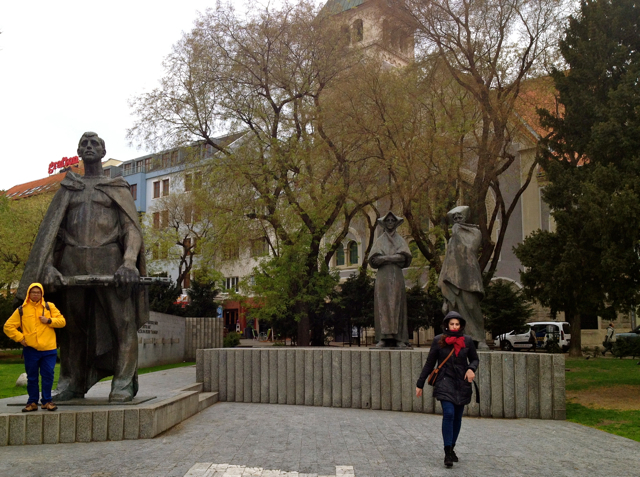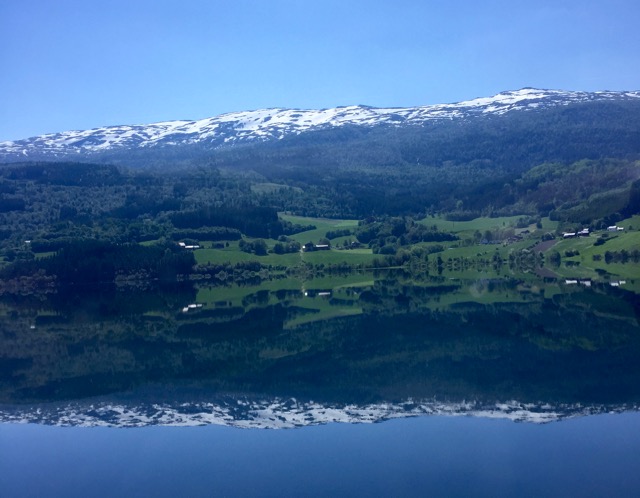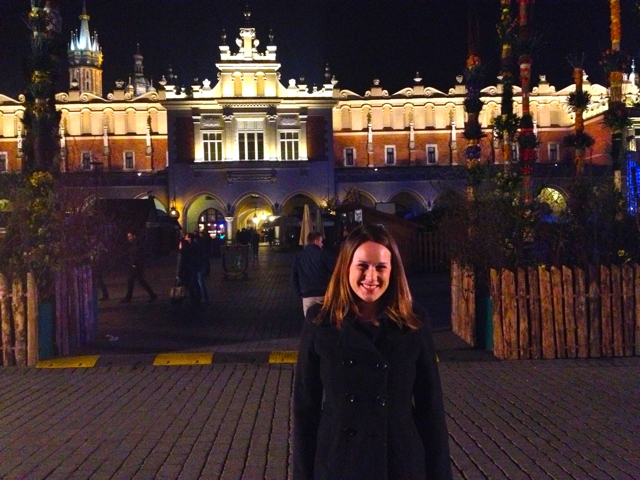
An Introduction to My Writings on the Eastern Bloc
As an American, the world has seemingly pointed West my entire life. At home, news from the East is contextualized to its impact on the United States. The majority of my studies in history growing up were inward focused, and even global topics such as World War II were usually centered on my own country’s role, leaving little room to explore what this time looked like and felt like for those who were neither American nor refugees who settled in America.
And even as I explored Europe this fall, my trips always seemingly pointed back toward home. Spain came to life for me as it leapt off the pages of Ernest Hemingway’s novels. In Dublin, I learned that more Irish people live in the United States than in Ireland. The Eiffel tower was a vision of Europe amplified for me by Hollywood, and Italy museum tours spoke of the Renaissance movement’s impact on the founding of the United States.
But as you travel through Europe, something strange happens: the world opens up and unfolds facing Eastward.
For me this turning point came in Berlin, which faces both East and West.
In Berlin, the echoes of the United States, France and England were replaced with Russia, Poland, Hungary and Turkey. Whispers of democracy are replaced by the shadows of Communism. I left this city feeling the weight of the gapping hole of my knowledge of these places and their histories.
I am currently living in Madrid teaching English in a public Elementary School, which means I have holiday breaks that give me more time to travel. For my Spring Break I was originally planning to walk part of the Camino de Santiago, but after visiting Berlin my desire to explore the Eastern Bloc, countries formerly ruled by the Communist USSR, burned so fervently that I changed my plan.
And so, this April, I visited the following places:
This trip was far different from the gelato-eating, vespa-riding, vino-drinking joy rides that began my exploration of Europe. It was at many times dark and heavy, shining a glaring light on some of the greatest terrors in modern history.
It was also one of the most rewarding. I learned so much about the history of Europe in the 20th century and filled in so many of my knowledge gaps of this time period. I also got off the well-beaten tourist track of Western Europe and was able to experience new cultures.
Above all, I ended this trip with a profound sense of how lucky I am. Before I went to the Eastern Bloc, I knew about the Holocaust and the Nazi’s genocide of Jewish people and massacre of other groups including homosexuals, the Roma and Sinti people and political opponents.
But what I didn’t realize was how truly horrific life was for people in the countries of the Eastern Bloc. First occupied by the Nazis, as the war ended, control shifted overnight to the Communists. One malicious dictator was swapped for another, and the people spent nearly a century living lives of fear, absent of freedom or economic prosperity.
And so I came back to Madrid feeling unbelievably blessed and lucky. Lucky to have the blessed opportunity to live in Europe in more peaceful times. Lucky to be American and be born with a myriad of rights I mostly take for granted. Lucky to be free and have freedom to be whoever I want to be and do whatever it is I want to do with my life.
I hope you enjoy my next series of posts on the Eastern Bloc and that they inspire you to learn more about the history of these places and search for the global lessons that can be taken from these horrors.
Sorry, the comment form is closed at this time.









Barb
Thank you that you were interested in Eastern bloc. 🙂 I live in Czech Republic and was very young when “Velvet Revolution” happened. One of my family ancestors was RAF pilot and was condemned to death after he returned to his beloved Czechoslovakia. “Fortunately”, then he was “only” in labour camp for almost 20 years, where he was injured etc. and died quite young. My grandparents had to hand over their horses, cows and machines to “united agricultural cooperation” and work there. My parents both were forbidden to study what they wanted because of being Christians, they only could study the “lower” schools. Terrible times, it is difficult to imagine it.
Lauren
Hi Barb! Thanks for reading and sharing your story here. The Eastern Bloc has faced terrible times and I am in awe of all the people who survived them. The Czech Republic is a beautiful country for you to call home! 🙂